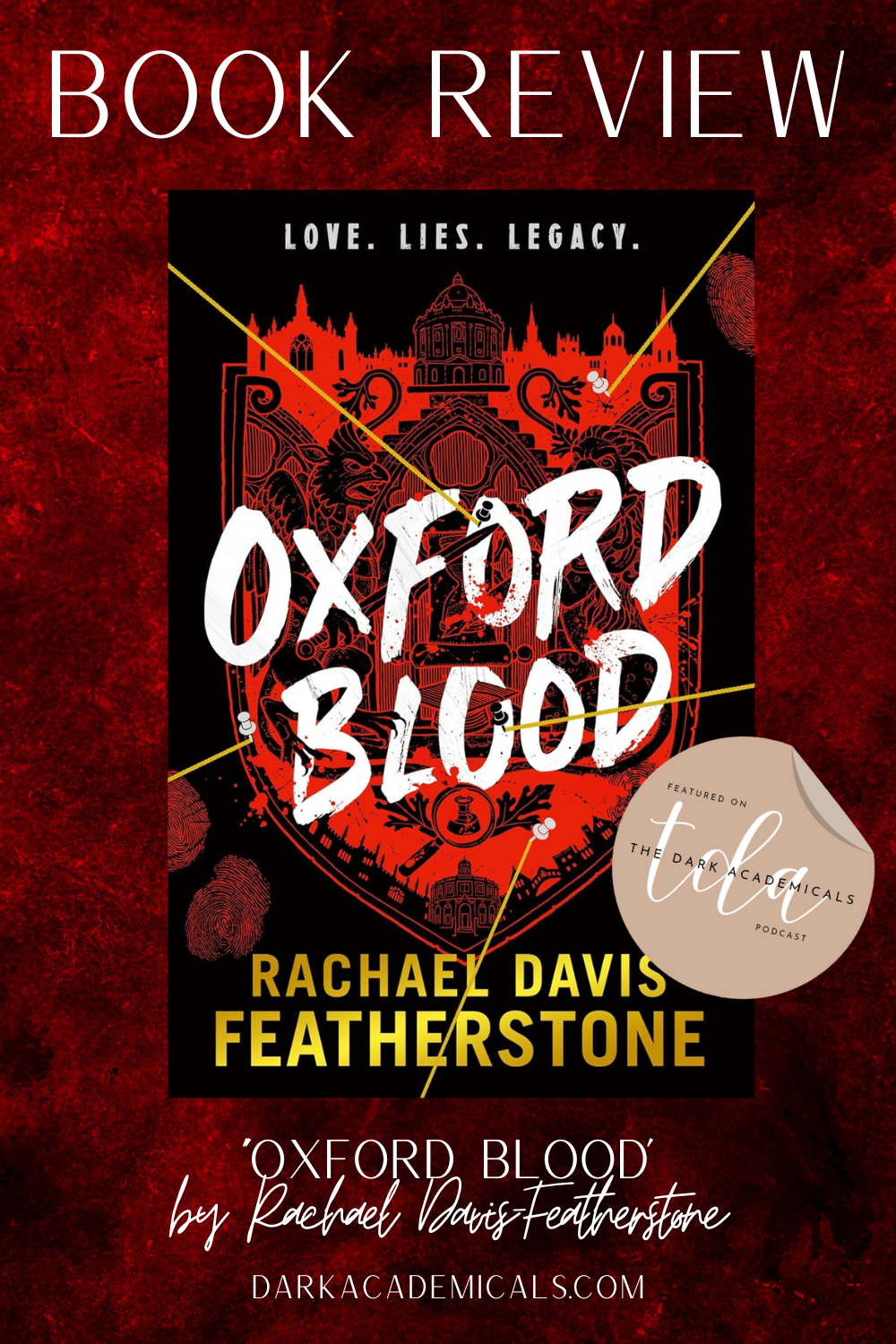Book Review: ‘Oxford Blood’ by Rachael Davis-Featherstone
Gifted by the publisher, Walker Books, with thanks. All thoughts and opinions are our own; no agreement was made with Walker regarding content produced.
(Also featured on a special podcast episode on our substack)
Right out the gate, Oxford Blood slaps. This is the kind of YA thriller that reminds you why the genre works so well when it’s done right: tight pacing, characters that feel alive, and just enough menace humming under the surface to keep you turning pages long past when you meant to stop. It’s slick, smart, and compulsively readable.
Eva, our protagonist, is easy to root for even as at the same time you want to grab her by the shoulders and beg her not to make that choice, not to trust that person. She’s messy, human, and painfully believable, and that’s what makes the book such a ride. I devoured it in two sittings; Sophie was the same.
I don’t want to spoil any of the twists (and there are plenty), so my hands are tied on specifics, but what I can say is this: there’s no lull, no moment where interest dips. As a YA, it also manages that tightrope walk of being age-appropriate while still tackling big, heavy themes: colonialism, institutional elitism and privilege, murder, threat, grief, the pressure to perform.
The supporting cast is equally strong. Eva’s father in particular stands out: he’s a grounding force, a pivotal figure, and his relationship with Eva lends the story an emotional depth that balances out all the tension and danger.
And then there’s Oxford itself. Davis-Featherstone nails the claustrophobic allure of the place; the ancient glamour, the rarefied air, and the stark reminder of how hard it can be to break into institutions like this if you’re coming in from the outside. Especially for minority students who lack the legacy and white privilege so often taken for granted, the novel captures how the gates of power don’t just swing open with hard work; they creak reluctantly, and sometimes not at all.
But there’s a wonderful balance here, too. The book doesn’t suggest that wanting Oxford, or any place like it, makes you complicit or naïve. It’s allowed. It’s human. You can recognise the cracks in the walls, the privilege baked into the stones, and still want to walk those halls yourself. And the story quietly affirms that you should.
Oxford Blood isn’t just a strong debut, it’s a sharp, urgent, utterly addictive novel. It interrogates power, privilege, and the closed doors of elite institutions, while also insisting it’s okay to still want those doors open, to still want to claim your place inside. That’s what makes it so compelling: it’s critical without being cynical, thrilling without ever losing heart.
And on top of all that? It’s just a fantastic read. Tense, twisty, impossible to put down. We had a blast with it, and we think you will too!
